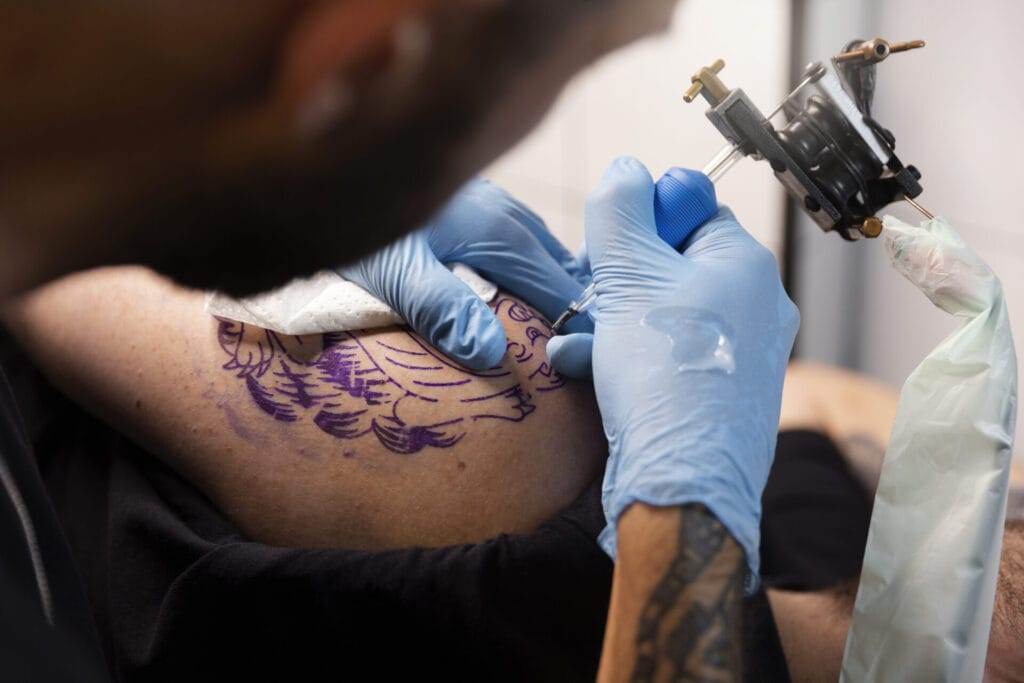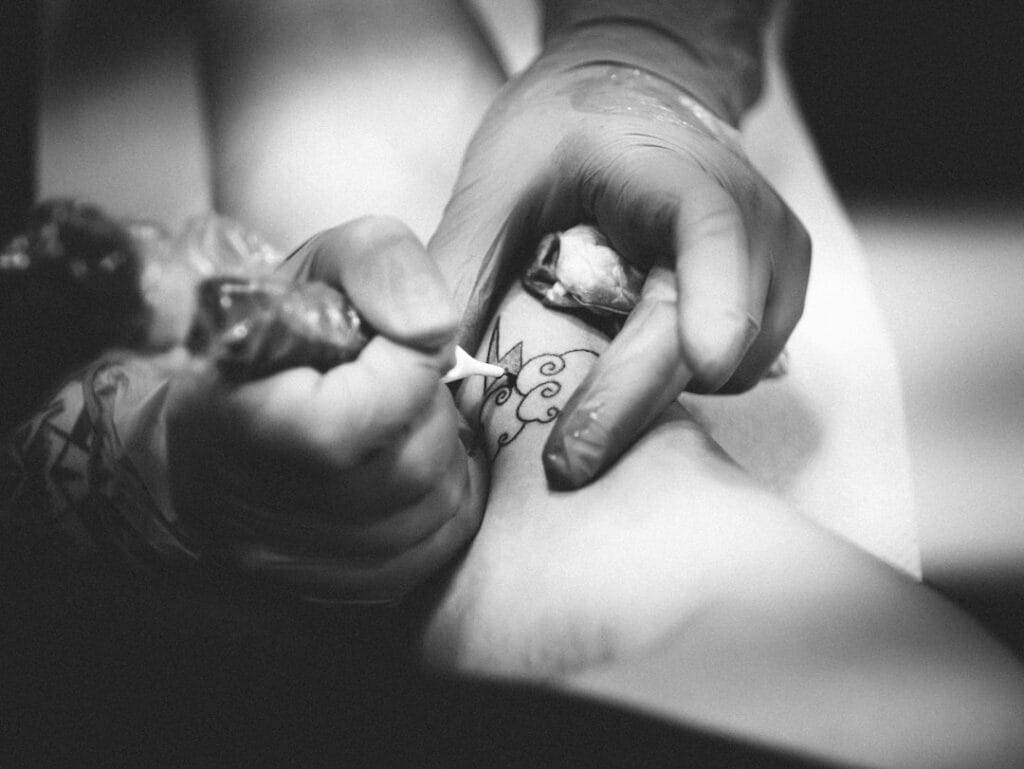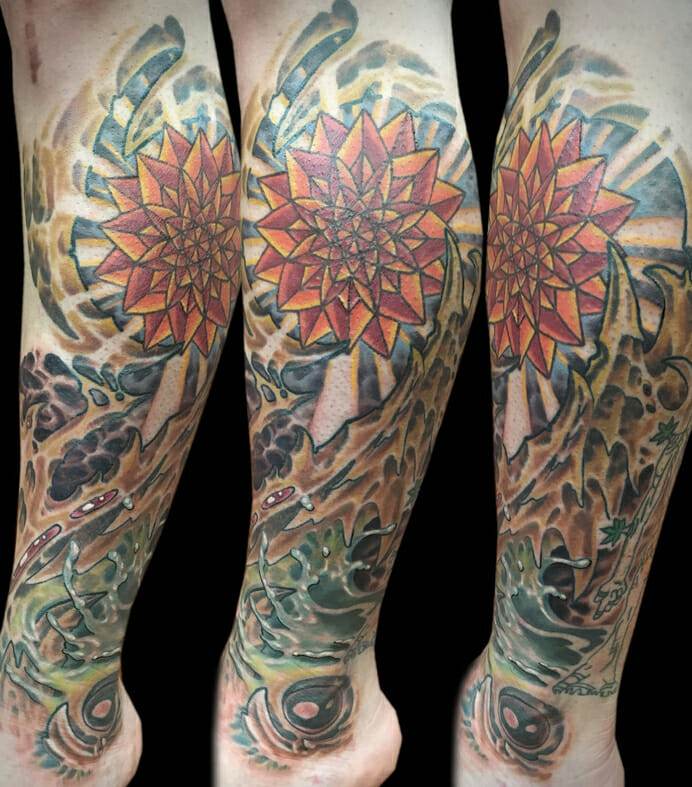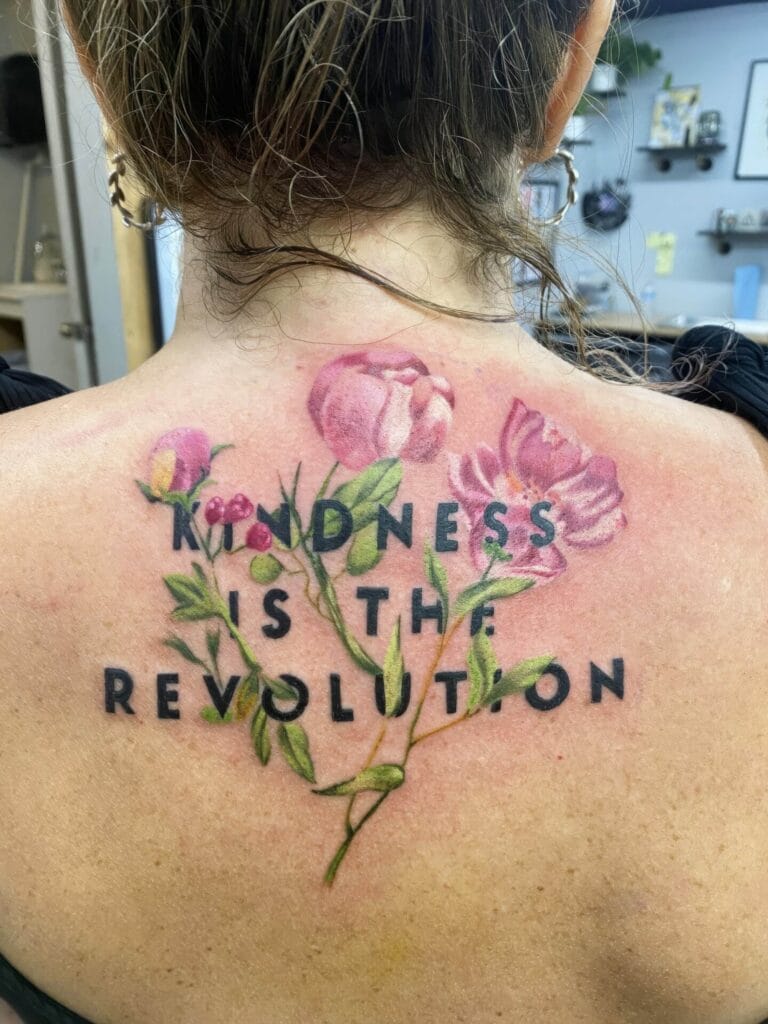
Tattoos have become increasingly popular in recent years, with an estimated 30-50% of the population having at least one. However, with the rise in tattoo popularity, there has also been a growing trend of tattoo regret. Many individuals find themselves wishing they had not gotten a particular tattoo, as their personal style, preferences, or life circumstances have changed over time.
The reasons for this tattoo regret are varied and complex. Some people may have made an impulsive decision to get a tattoo, without fully considering the long-term implications or the permanence of the decision. Others may find that a tattoo that once seemed meaningful no longer aligns with their current identity or lifestyle. As people’s tastes and preferences evolve, a tattoo that was once cherished can become a source of discomfort or embarrassment.
Regardless of the reason, tattoo regret is a common experience, and it is important for individuals to understand that they are not alone in their feelings. By recognizing the prevalence of tattoo regret and the underlying factors that contribute to it, individuals can take steps to address their concerns and find a path forward.
Key Takeaways
- Tattoo regret is more common than you might think, with a significant percentage of people experiencing some level of regret after getting a tattoo.
- Reasons for tattoo regret can range from a change in personal taste to negative associations with the tattoo’s meaning.
- Signs of tattoo regret can include feelings of embarrassment, discomfort, or a desire to cover up the tattoo.
- Laser removal is considered the most effective method for tattoo removal, offering the best results with the fewest side effects.
- Managing the emotional aspects of tattoo regret is an important part of the removal process, and seeking support from friends, family, or a therapist can be helpful.
Understanding the Reasons for Tattoo Regret
One of the primary reasons for tattoo regret is changes in personal style or preferences. As people’s tastes and lifestyles evolve, a tattoo that once seemed meaningful may no longer align with their current identity. For example, a tattoo that was chosen in the heat of the moment or during a particular phase of life may no longer reflect the individual’s current values, interests, or aspirations.
Another common reason for tattoo regret is impulsive decision-making. Some individuals get tattoos on a whim, without fully considering the long-term implications or the permanence of the decision. This can lead to feelings of regret and a desire to remove the tattoo, as the individual realizes that the tattoo does not truly represent who they are or what they value.
It is important to recognize that tattoo regret is a complex and multifaceted issue. While changes in personal style or impulsive decision-making may be the primary drivers, other factors, such as social stigma, career considerations, or personal relationships, can also contribute to an individual’s desire to remove a tattoo. By understanding the underlying reasons for tattoo regret, individuals can better navigate the process of addressing their concerns and finding a solution that aligns with their current needs and goals.
Recognizing the Signs of Tattoo Regret
Tattoo regret can manifest in a variety of ways, and it is important for individuals to be able to recognize the signs. One of the most common signs of tattoo regret is feeling self-conscious or embarrassed about the tattoo. Individuals may find themselves actively trying to hide or cover up the tattoo, either through clothing or by using makeup or other concealing methods.
Another sign of tattoo regret is experiencing negative emotions, such as shame or regret, whenever the tattoo is visible. Individuals may feel a sense of discomfort or dislike towards the tattoo, and this can have a significant impact on their self-confidence and overall well-being.
It is important to note that the signs of tattoo regret can vary from person to person. Some individuals may be more vocal about their regret, while others may internalize their feelings and struggle to address the issue. Regardless of the outward manifestation, it is crucial for individuals to recognize and acknowledge their feelings of regret, as this is the first step towards finding a solution.
By being aware of the signs of tattoo regret, individuals can take proactive steps to address their concerns and explore options for tattoo removal or other solutions. This can help to alleviate the emotional burden of tattoo regret and provide a path towards greater self-acceptance and confidence.
Exploring Tattoo Removal Options
For individuals who are experiencing tattoo regret, there are several options available for tattoo removal. The most common and effective method is laser removal, which uses targeted light energy to break down the ink particles in the tattoo, allowing the body to naturally remove them over time.
Another option for tattoo removal is chemical peels, which involve the application of a chemical solution to the skin to gradually remove the tattoo. While this method is less invasive than laser removal, it is generally less effective and may require multiple treatments to achieve the desired results.
In some cases, surgical removal may be an option, particularly for small or simple tattoos. This involves the physical removal of the tattooed skin, and is typically reserved for cases where other removal methods have been unsuccessful or are not suitable.
When exploring tattoo removal options, it is important to work with a qualified and experienced specialist who can provide guidance and support throughout the process. This includes discussing realistic expectations, understanding the potential for discomfort or side effects, and ensuring proper aftercare and follow-up to optimize the results.
By understanding the various tattoo removal options and working with a skilled professional, individuals can take the first step towards addressing their tattoo regret and reclaiming their sense of self-confidence and well-being.
Laser Removal: The Most Effective Approach
| Reasons for Tattoo Regret | Percentage |
|---|---|
| Impulsive decision | 27% |
| Design doesn’t fit lifestyle | 19% |
| Relationship-related tattoos | 18% |
| Employment concerns | 17% |
| Regret over the tattoo’s appearance | 15% |
Laser removal is widely considered the most effective and reliable method for tattoo removal. This approach uses targeted light energy to break down the ink particles in the tattoo, allowing the body to naturally remove them over time.
The process of laser removal works by delivering short bursts of high-energy light to the tattooed area. This light energy is absorbed by the ink particles, causing them to heat up and break down into smaller fragments. The body’s immune system then recognizes these smaller particles as foreign and works to remove them, gradually fading the tattoo over the course of several treatment sessions.
The success of laser removal can be influenced by a variety of factors, including the type of ink used in the tattoo, the location of the tattoo on the body, and the individual’s skin tone and healing response. Darker inks, such as black and blue, tend to respond better to laser removal, while lighter colors like yellow and green can be more challenging to remove.
It is important to work with a qualified and experienced laser removal specialist to ensure the best possible outcomes. These professionals have the expertise to assess the tattoo, develop a customized treatment plan, and monitor the progress of the removal process to minimize any potential side effects or complications.
By choosing laser removal as the preferred method for tattoo removal, individuals can take advantage of the most effective and reliable approach to addressing their tattoo regret and reclaiming their sense of self-confidence and well-being.
Preparing for the Tattoo Removal Process
Preparing for the tattoo removal process is an important step in ensuring a successful and comfortable experience. Individuals should be aware that the process may require multiple treatment sessions, and that there may be some discomfort or side effects associated with the procedure.
One of the key factors to consider is the number of sessions required for complete tattoo removal. This can vary depending on the size, location, and complexity of the tattoo, as well as the individual’s skin type and response to the treatment. It is important to discuss realistic expectations with the laser removal specialist, so that individuals can plan accordingly and manage their expectations throughout the process.
In addition to the number of sessions, individuals should also be prepared for the potential discomfort or side effects associated with the laser removal process. This may include temporary redness, swelling, or blistering in the treated area, as well as the possibility of scarring or pigmentation changes. The laser removal specialist can provide guidance on proper aftercare and follow-up to minimize these potential side effects and optimize the results.
By understanding the requirements and potential challenges of the tattoo removal process, individuals can better prepare themselves mentally and physically for the journey ahead. This can help to alleviate any anxiety or stress associated with the procedure and ensure a more positive and successful outcome.
Managing the Emotional Aspects of Tattoo Regret
Addressing tattoo regret is not just a physical process, but also an emotional one. Individuals who are struggling with feelings of regret, shame, or embarrassment about their tattoo may benefit from acknowledging and addressing these emotions.
One important step in managing the emotional aspects of tattoo regret is to seek support from friends, family, or a mental health professional. Talking about the feelings of regret and the reasons behind them can help individuals to process their emotions and develop coping strategies.
It is also important for individuals to focus on the positive aspects of the tattoo removal journey. While the process may be challenging, it can also be an opportunity for personal growth and self-discovery. By embracing the journey and celebrating the lessons learned, individuals can move forward with a renewed sense of self-confidence and empowerment.
In some cases, individuals may benefit from seeking professional counseling or therapy to address the deeper emotional issues underlying their tattoo regret. A mental health professional can provide guidance and support in navigating the emotional aspects of the tattoo removal process and developing healthy coping mechanisms.
By acknowledging and addressing the emotional aspects of tattoo regret, individuals can take a more holistic approach to addressing their concerns and finding a path forward that aligns with their values, goals, and sense of self.
Preventing Future Tattoo Regret
While addressing existing tattoo regret is important, it is also crucial to consider ways to prevent future tattoo regret. By encouraging thoughtful decision-making and exploring alternative forms of self-expression, individuals can reduce the risk of making a decision they may later come to regret.
One key strategy for preventing future tattoo regret is to encourage individuals to carefully consider the long-term implications of getting a tattoo. This includes reflecting on their personal style, values, and goals, and how a particular tattoo may align (or not align) with these factors. Individuals should also be encouraged to consider the potential for future changes in their preferences or lifestyle, and how this may impact their feelings towards the tattoo.
In addition to thoughtful decision-making, individuals may also benefit from exploring alternative ways to express themselves, such as temporary tattoos or henna designs. These options can provide a way to experiment with different designs and styles without the permanence of a traditional tattoo.
By taking a proactive approach to preventing future tattoo regret, individuals can empower themselves to make informed decisions that align with their long-term goals and values. This can help to reduce the emotional and financial burden of addressing tattoo regret in the future.

Moving Forward: Embracing Your Tattoo Journey
Ultimately, the journey of addressing tattoo regret is one of personal growth and self-discovery. While the experience may be challenging, it can also be an opportunity to embrace the lessons learned and move forward with a renewed sense of self-confidence and empowerment.
It is important for individuals to recognize that tattoo regret is a common experience, and that there are solutions available to address their concerns. By exploring the various tattoo removal options and working with qualified professionals, individuals can take steps towards reclaiming their sense of self and moving forward with a fresh perspective.
Throughout the tattoo removal process, it is crucial for individuals to focus on the positive aspects of the journey. This may involve celebrating the progress made, acknowledging the personal growth and resilience demonstrated, and embracing the opportunity for a fresh start. By adopting a mindset of self-acceptance and self-compassion, individuals can navigate the challenges of tattoo regret with greater ease and confidence.
As individuals move forward, it is important to remember that the tattoo journey is a unique and personal experience. While some may choose to remove their tattoos, others may decide to embrace them as a part of their personal history and identity. Regardless of the path chosen, the key is to approach the experience with a sense of self-awareness, self-acceptance, and a commitment to personal growth and well-being.
FAQs
What is tattoo regret?
Tattoo regret refers to the feeling of remorse or dissatisfaction that some individuals experience after getting a tattoo. This can be due to a variety of reasons, such as changes in personal taste, poor quality of the tattoo, or the tattoo not turning out as expected.
What are some common reasons for tattoo regret?
Common reasons for tattoo regret include getting a tattoo on impulse, choosing a design that no longer holds personal significance, experiencing a change in lifestyle or beliefs, or being unhappy with the quality of the tattoo.
What are some options for dealing with tattoo regret?
Options for dealing with tattoo regret include tattoo removal through laser treatments, tattoo cover-ups with a new design, or seeking professional help to improve the appearance of the existing tattoo.
Is tattoo removal painful?
Tattoo removal through laser treatments can be uncomfortable and may cause some pain. However, the level of discomfort varies depending on individual pain tolerance and the size and location of the tattoo.
How effective is tattoo removal?
Tattoo removal through laser treatments can be effective in fading or removing tattoos, but complete removal may not always be possible. The effectiveness of tattoo removal depends on factors such as the size, color, and age of the tattoo, as well as the individual’s skin type.
Are there any risks or side effects associated with tattoo removal?
Some potential risks and side effects of tattoo removal through laser treatments include temporary skin discoloration, scarring, blistering, and infection. It’s important to consult with a qualified professional to understand the potential risks and benefits of tattoo removal.









